Description
Documentation provides sound structures and tools to maintain a Documentation Management System based on WordPress.
Leveraging WordPress’ framework and internal structures, the system provides a completely new section to manage documents independently from normal posts or pages.
Documents are complemented by their dedicated document categories and document tags, which allows to keep the documentation structures separate from the more blog-oriented posts or CMS-like pages.
It can be used to build a dedicated documentation site, a subsite for documentation in a multisite network or other creative deployments.
See our documentation portal for an example where we use the system to maintain a considerable amount of documentation for our tools.
Simple to use, yet powerful to maintain even thousands of documentation pages.
Documents can be attached to products in WooCommerce using WooCommerce Documentation.
Widgets
The plugin provides several widgets that are used to display document links:
- Document Hierarchy : facilitates navigating and viewing the document hierarchy
- Document Children : displays links to children of documents
- Documents : to display sets of document links
- Document Categories : to display links to document categories
Shortcodes
The following shortcodes are available:
- [documentation_documents] Lists documents, also useful to list documents in a category.
- [documentation_categories] Renders a list of links to the document categories.
- [documentation_hierarchy] Provides a means to navigate the documentation structure, equivalent to the Document Hierarchy widget.
- [documentation_list_children] Lists the children of a document like the Document Children widget.
- [documentation_search_form] Renders a dynamic search form. Use Search Live for a more flexible search form.
Recommended Useful Additions
You should have a look at these tools. They will help you get the most out of this Documentation Management System.
- WooCommerce Documentation This extension for WooCommerce and the Documentation plugin for WordPress allows to link documentation pages to products and display them automatically on the product pages.
- Groups Groups is designed as an efficient, powerful and flexible solution for group-oriented memberships and content access control. Use it to control who can view documents and more.
- Groups Restrict Categories An extension based on Groups, provides access restrictions for categories and tags, custom post types and taxonomies. Very useful to restrict whole sets of documents based on their document categories or tags.
- Search Live Search Live supplies effective integrated live search facilities and advanced search features. Makes it really easy to find the desired documents.
- Widgets Control Widgets Control is a toolbox that features visibility management for all widgets, sidebars, sections of content and content blocks. This is very useful to show content and widgets in context.
- Widgets Control Pro Widgets Control Pro is the advanced version of the Widgets Control toolbox that features visibility management for all widgets, sidebars, sections of content and content blocks. With its additional features, it is even more useful to show document-specific content and widgets, including the options to show widgets on documents and related pages only.
- Decent Comments Decent Comments shows what people say. If you want to show comments along with their author’s avatars and an excerpt of their comment, then this is the right plugin for you. Use it to show comments posted on documents only or including them.
- Open Graph Protocol Framework The Open Graph protocol enables any web page to become a rich object in a social graph. For instance, this is used on Facebook to allow any web page to have the same functionality as any other object on Facebook. This will automate the process of adding basic and optional metadata to documents.
Documentation
Please refer to the documentation pages for details.
The site uses the Documentation plugin and is a good example of deployment, with an extensive set of documentation sections and pages.
Feedback
Feedback is welcome!
If you need help, have problems, want to leave feedback or want to provide constructive criticism, please do so here at the Documentation plugin page.
Please try to solve problems there before you rate this plugin or say it doesn’t work. There goes a lot of work into providing you with free quality plugins! Please appreciate that and help with your feedback. Thanks!
Follow @itthinx on Twitter for updates on this and other plugins.
Screenshots
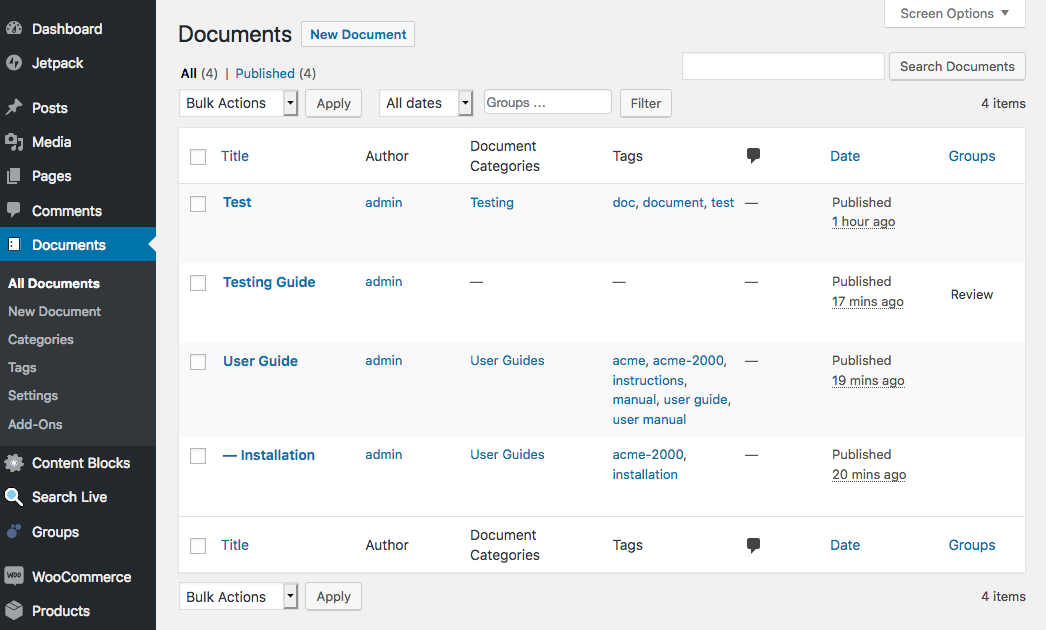
Some example documents as viewed on the back end. 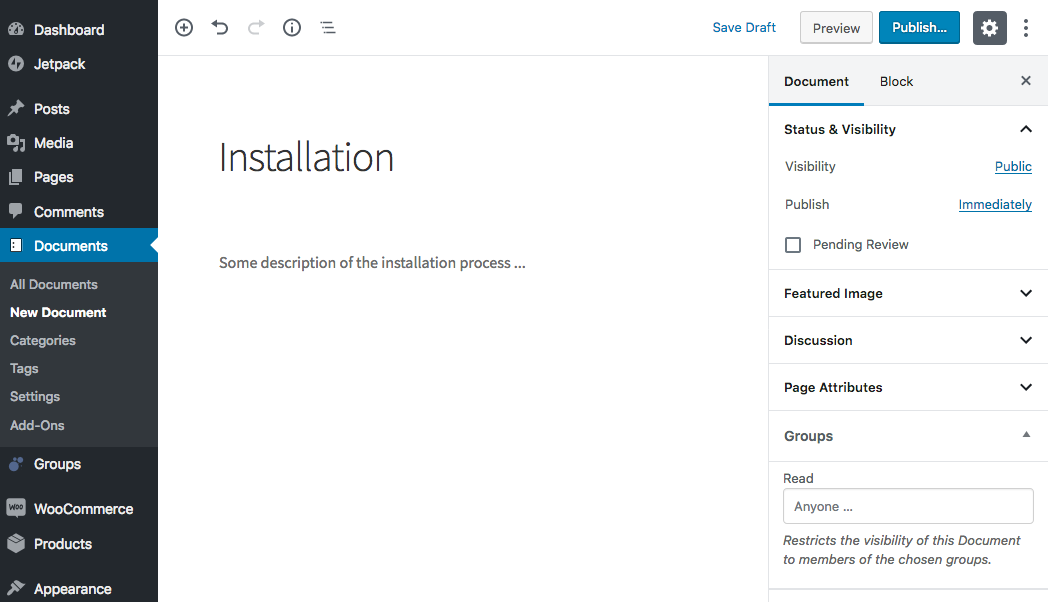
Editing an example document. 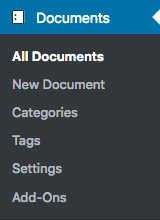
Documents Menu 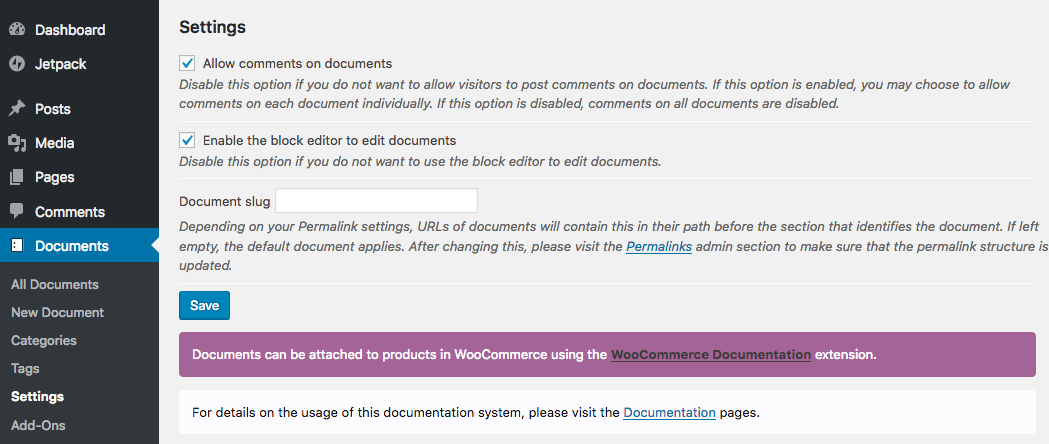
Settings. 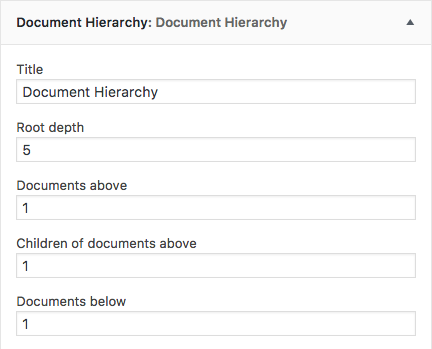
Document Hierarchy widget settings 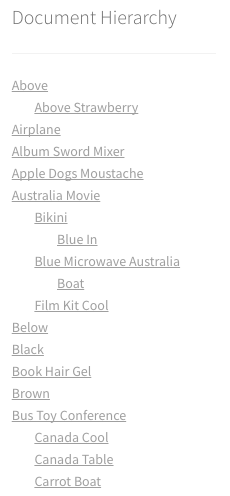
Document Hierarchy widget example output 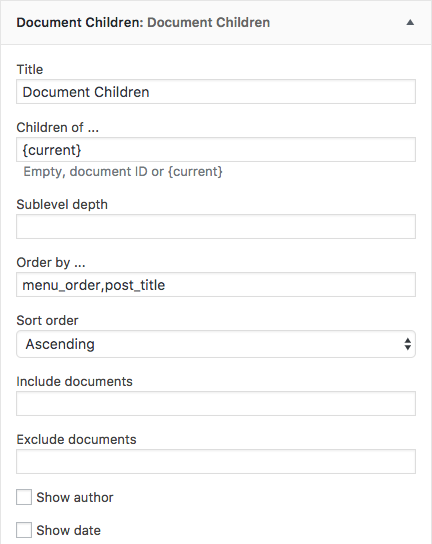
Document Children widget settings 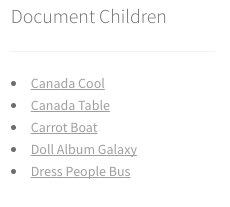
Document Children widget example output 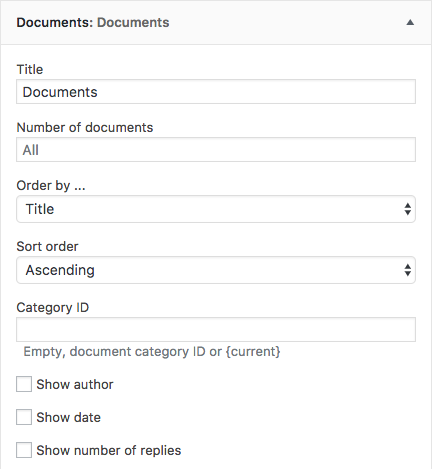
Documents widget settings 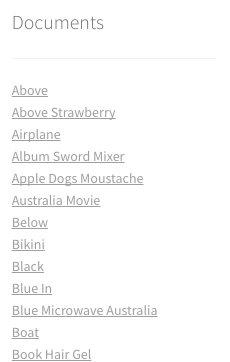
Documents widget example output 
[documentation_hierarchy] shortcode example output 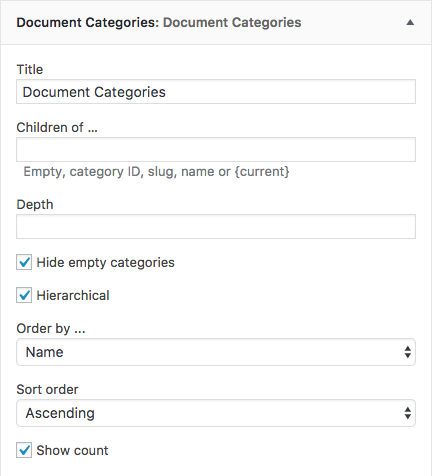
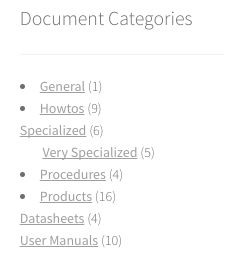
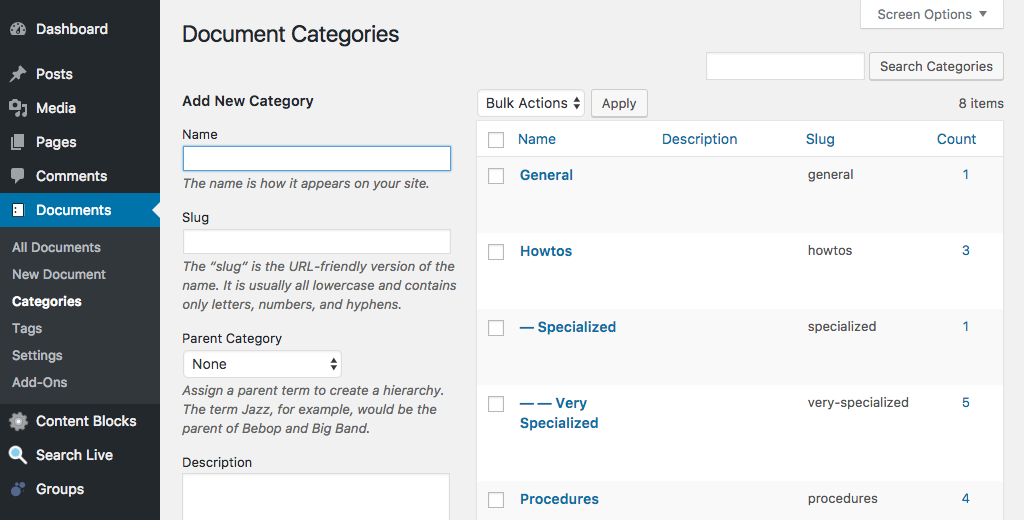
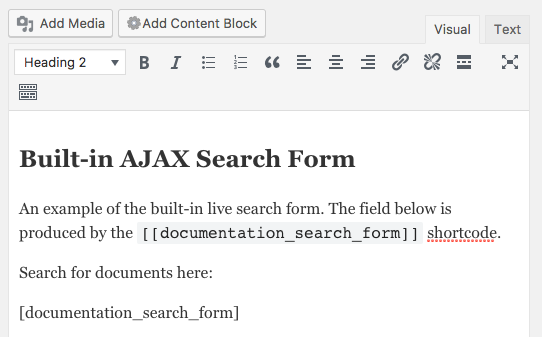
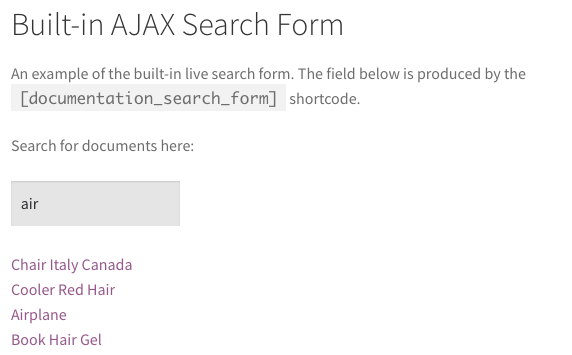
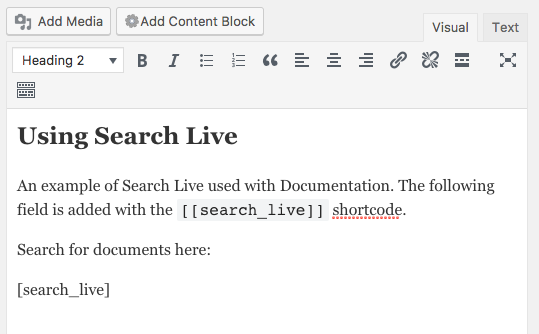
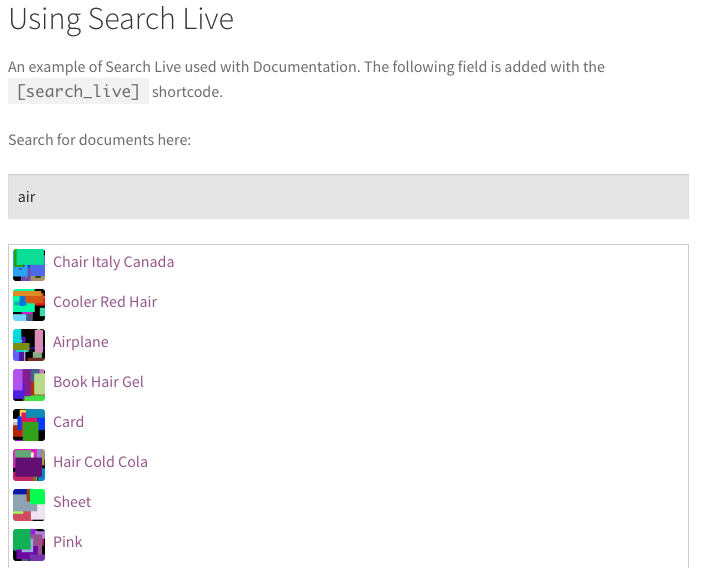
Installation
- Upload or extract the
documentationfolder to your site’s/wp-content/plugins/directory. You can also use the Add new option found in the Plugins menu in WordPress. - Enable the plugin from the Plugins menu in WordPress.
FAQ
-
Where is the documentation?
-
The documentation pages are here and we obviously use our Documentation plugin to maintain them.
Reviews
Contributors & Developers
“Documentation” is open source software. The following people have contributed to this plugin.
ContributorsTranslate “Documentation” into your language.
Interested in development?
Browse the code, check out the SVN repository, or subscribe to the development log by RSS.
Changelog
For the full changelog see changelog.txt.